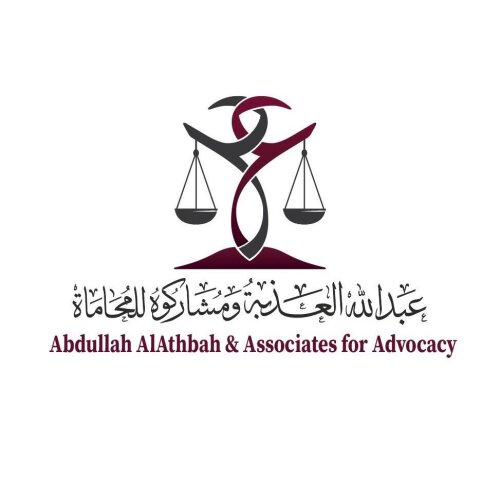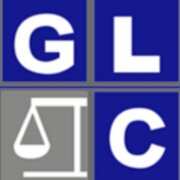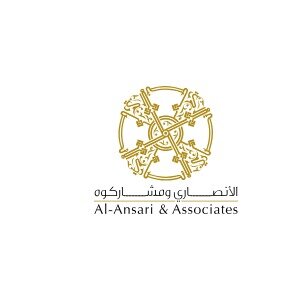Best Debt Capital Markets Lawyers in Qatar
Share your needs with us, get contacted by law firms.
Free. Takes 2 min.
Or refine your search by selecting a city:
List of the best lawyers in Qatar
About Debt Capital Markets Law in Qatar
Debt capital markets in Qatar refer to the mechanisms through which entities such as governments, corporations, and financial institutions raise funds by issuing debt securities. These can include bonds, sukuk (Islamic bonds), and other fixed income instruments. The Qatari market has seen steady growth, especially with the expansion of infrastructure projects and increased participation of foreign investors. As a developing hub in the Middle East, Qatar's debt capital markets operate under both local laws and regional regulations, helping issuers and investors manage, structure, and trade various debt instruments.
Why You May Need a Lawyer
Engaging in Qatar's debt capital markets can be complex, involving a mixture of legal, regulatory, and business considerations. You may need a lawyer if you are:
- Considering issuing bonds or sukuk as a government or corporate entity
- An investor seeking to purchase, trade, or manage Qatari debt instruments
- A financial institution looking to structure debt products or manage compliance
- Facing cross-border transactions, especially those involving multiple legal jurisdictions
- Dealing with restructuring or refinancing of existing debt obligations
- Needing advice on taxation, Shari’ah compliance, or regulatory approvals
A qualified lawyer ensures your transactions are compliant with Qatari law, helps you navigate regulatory requirements, and protects your interests in negotiations or disputes.
Local Laws Overview
Qatar's debt capital markets are governed by a combination of local and regional regulations. Some key legal aspects include:
- The Qatar Central Bank (QCB): Regulates the issuance of debt by financial institutions and oversees monetary policy.
- Qatar Financial Markets Authority (QFMA): Supervises public offerings, trading of securities, and market conduct.
- Qatar Exchange: Provides the main platform for listing and trading bonds and sukuk.
- Qatar Financial Centre (QFC): Offers an alternative legal and regulatory framework for certain issuers and investors, especially foreign entities.
- Shari’ah Compliance: Islamic finance principles are often integral, especially for sukuk issuance, requiring transactions to align with Shari’ah law.
- Disclosure and Prospectus Requirements: Issuers must provide detailed information to potential investors in accordance with QFMA rules.
- Cross-Border Regulations: Debt instruments sold internationally must comply with both Qatari and international laws, necessitating careful legal considerations.
Frequently Asked Questions
What are common types of debt instruments issued in Qatar?
In Qatar, common debt instruments include government bonds, corporate bonds, and sukuk (Islamic bonds). These may vary in maturity, structure, and risk profile.
Who regulates debt capital markets in Qatar?
The Qatar Financial Markets Authority (QFMA) and Qatar Central Bank (QCB) are the main regulatory bodies overseeing the debt capital markets, while the Qatar Financial Centre (QFC) provides an additional regulatory framework for certain entities.
Is it possible for foreign investors to participate in Qatar’s debt capital markets?
Yes, foreign investors can participate subject to local regulatory requirements and any restrictions on ownership or capital flow imposed by Qatari law.
What is sukuk and how does it differ from traditional bonds?
Sukuk are Islamic financial certificates similar to bonds, structured to comply with Shari’ah law, which prohibits interest. Instead, sukuk represent an ownership interest in assets or projects.
Are there tax implications for investing in debt securities in Qatar?
Taxation depends on the type of entity and the regulatory jurisdiction within Qatar. The Qatar Financial Centre (QFC) may offer a different tax regime compared to onshore Qatar.
What disclosures are required when issuing debt instruments?
Issuers generally need to provide comprehensive prospectuses detailing the terms, risks, and financials of the offering in line with QFMA and QCB regulations.
Can debt instruments be structured to meet both local and international standards?
Yes, many issuers structure debt instruments to comply with both Qatari and international standards, especially for offerings targeting overseas investors.
How does Shari’ah compliance affect debt capital market transactions?
For Islamic financial products such as sukuk, transactions must comply with Shari’ah principles, meaning they cannot involve interest and must be linked to tangible assets or services.
What are the key risks associated with investing in Qatari debt instruments?
Risks include credit risk, market risk, regulatory changes, and-where relevant-Shari’ah compliance risk, particularly for Islamic investors.
How can legal counsel assist in a debt capital markets transaction?
A skilled lawyer can help with structuring deals, drafting documentation, ensuring regulatory compliance, advising on cross-border issues, conducting due diligence, and negotiating terms to protect your interests.
Additional Resources
If you need more guidance or wish to deepen your understanding of debt capital markets in Qatar, consider reaching out to the following organizations:
- Qatar Financial Markets Authority (QFMA)
- Qatar Central Bank (QCB)
- Qatar Exchange
- Qatar Financial Centre (QFC)
- Qatar Chamber of Commerce and Industry
- International law firms with offices in Qatar, specializing in capital markets
Next Steps
If you are considering participating in Qatar's debt capital markets or facing legal challenges involving debt instruments, your first step should be to consult a qualified lawyer with experience in Qatari capital markets law. Gather all relevant documents and information regarding your intended transaction or query. Clarify your objectives and any specific concerns you have regarding compliance, structuring, or risk. Schedule an initial consultation to assess your needs and explore your legal options. Ensuring proper legal advice at the outset will help protect your interests, ensure compliance, and facilitate a successful transaction.
Lawzana helps you find the best lawyers and law firms in Qatar through a curated and pre-screened list of qualified legal professionals. Our platform offers rankings and detailed profiles of attorneys and law firms, allowing you to compare based on practice areas, including Debt Capital Markets, experience, and client feedback.
Each profile includes a description of the firm's areas of practice, client reviews, team members and partners, year of establishment, spoken languages, office locations, contact information, social media presence, and any published articles or resources. Most firms on our platform speak English and are experienced in both local and international legal matters.
Get a quote from top-rated law firms in Qatar — quickly, securely, and without unnecessary hassle.
Disclaimer:
The information provided on this page is for general informational purposes only and does not constitute legal advice. While we strive to ensure the accuracy and relevance of the content, legal information may change over time, and interpretations of the law can vary. You should always consult with a qualified legal professional for advice specific to your situation.
We disclaim all liability for actions taken or not taken based on the content of this page. If you believe any information is incorrect or outdated, please contact us, and we will review and update it where appropriate.
Browse debt capital markets law firms by city in Qatar
Refine your search by selecting a city.















